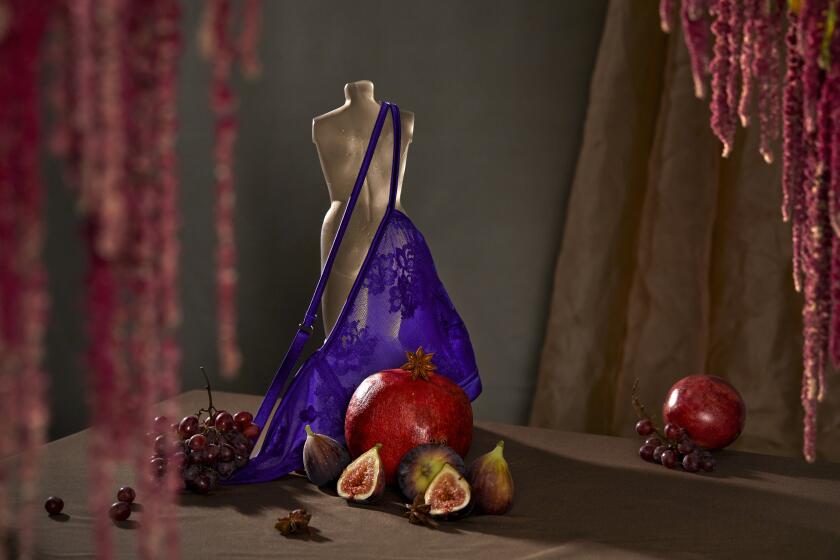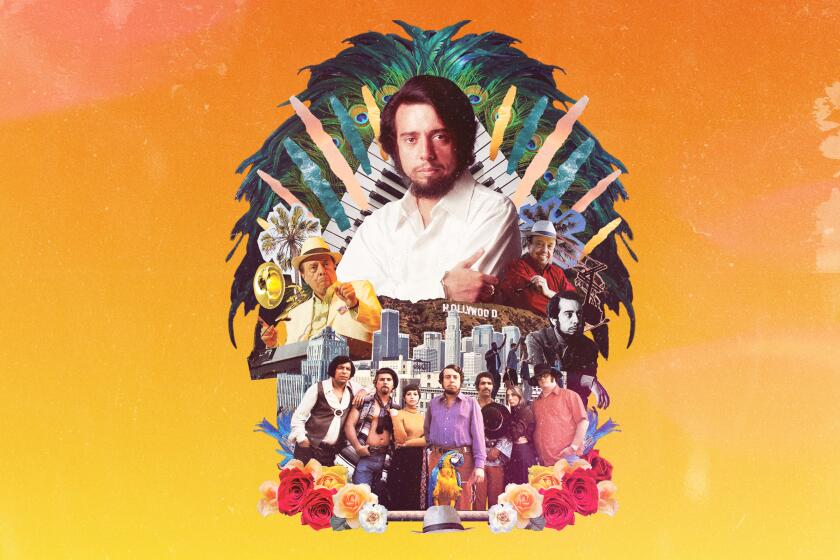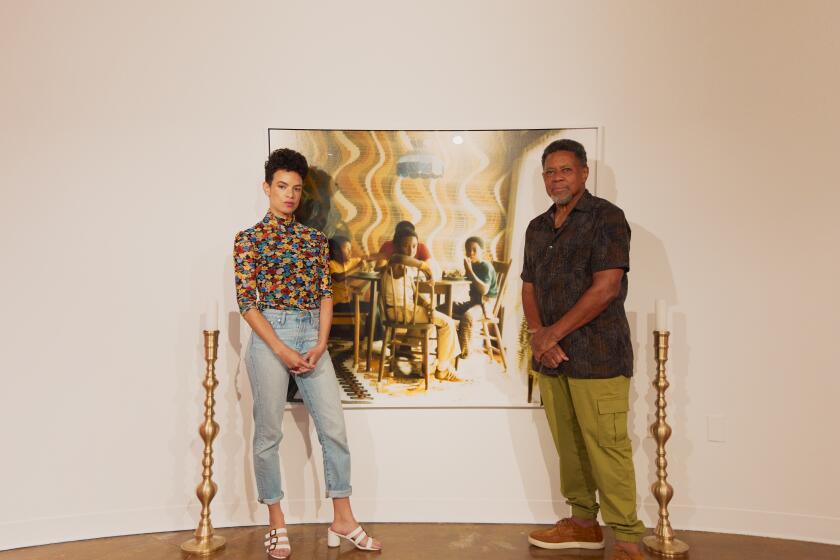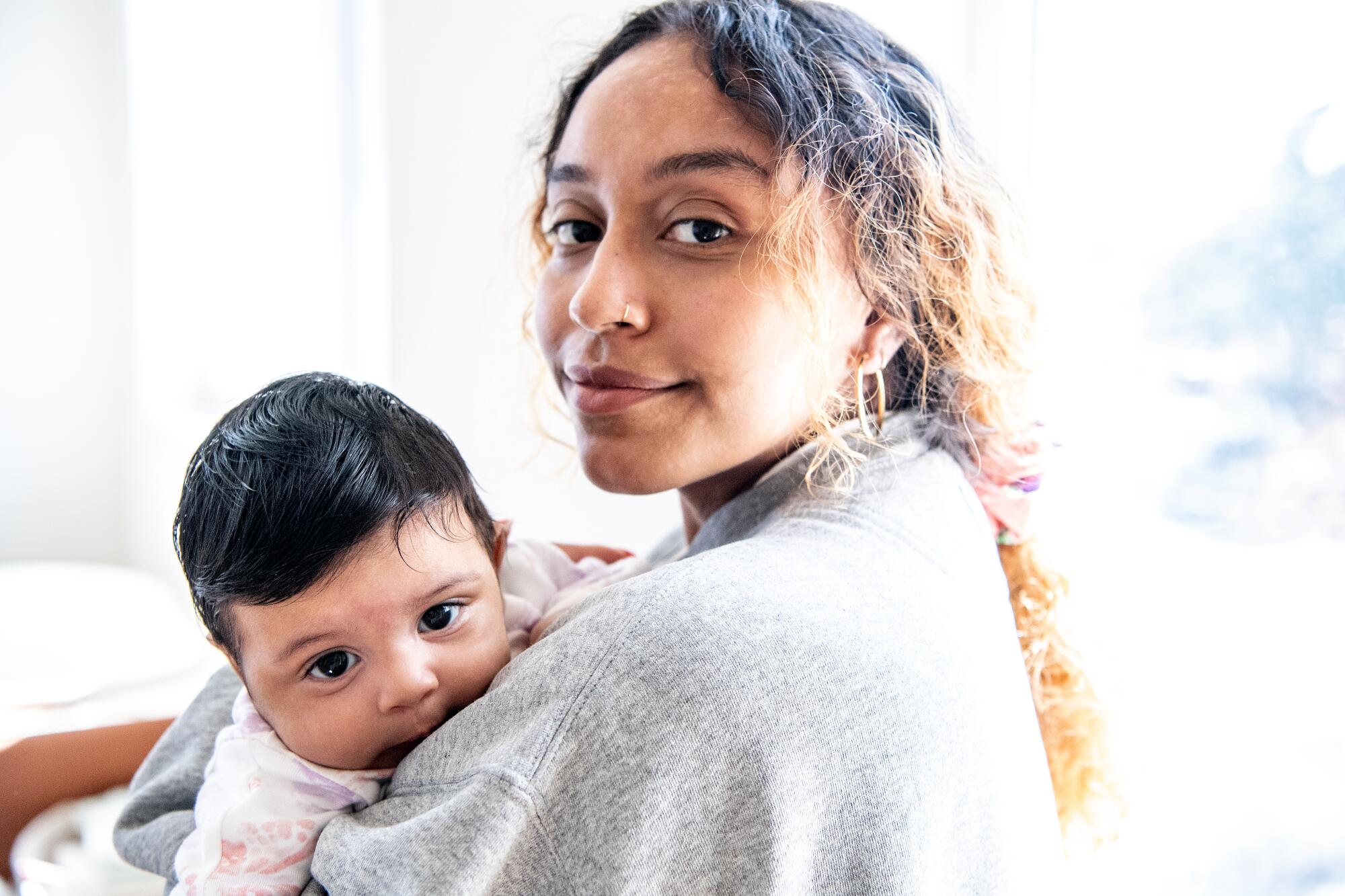
- Share via
This story is part of Parents Are Cool!, the third issue of Image, which explores the myriad ways in which L.A. parents practice the craft of care. See the full package here.
The following interview has been edited and condensed for clarity.
I had Isla in my bathtub, at home. Birth is the most gnarliest thing of life.
It was very dark. We had tea light candles lit. We had essential oils going in the diffuser. My husband, Franco, had made a labor playlist (I remember Sade). I had my grandmother’s picture in there, basically made like a little altar.
I’m in this super deep meditation, because this is the only way I’m going to get through this. Ninety-seven percent of the time my eyes are closed. I’m just focused on my breathing to manage the pain. I vomit because that’s how strong the pain is coming on. During this meditation, I had this vision of an ancestor that I had never met previously, but I knew they were related on my mom’s side, specifically to my grandmother. He had the same complexion as me, but he had golden hair and golden eyes. I just remember him staring at me in a way that was reassuring, like, “I’m here. You’re being watched over.” He was in all white and had a white hat on.
No one tells you that when you’re in labor your hands shake so much. My midwife, Debbie Allen, was like, “Just reach down, her head is right there,” and I’m like, “I can’t reach down, I’m shaking too much!” So she checked, and she’s like, “Your water hasn’t broken yet. Do you want me to break your water or do you want to reposition by sitting on the toilet and seeing if that will break it?”
I think my actual words to her were, “Just fucking break it.”
Debbie Allen is a traditional home birth midwife in L.A. and the founder of the Tribe Midwifery. “She’s my midwife for life, for real,” says Escobar. “Debbie is all about providing the community with the tools they need to be empowered to birth the way that they want to.”
Then, boom, Isla is basically on her way out. I feel her in my pelvis. This is when my body just completely takes over. The only way that I can describe it is like when you’re involuntarily vomiting. Everything is just conspiring to push this fluid out of you. Imagine that but pushing out a baby.
I get on all fours and I have two big pushes, and then I hear, “Look down and pick up your baby.” There is Isla in the water, her eyes wide open looking back at me. It was literally the most peaceful moment. You’ve just been in the trenches, you know? As beautiful as birth is, it’s this totally traumatic thing on your body. The pain that you’re experiencing is unworldly and then all of a sudden, I’m holding her and it’s just like all the pain goes away.
While all this was happening, the water in the tub is getting darker and darker.
My placenta hadn’t come out yet. A little piece of it had come off but not the whole thing, and because of that I was bleeding a lot. My midwife had to act quickly. She literally had to manually rip that shit out of me. My bathroom looked like an episode of “Dexter.” There’s blood on the cupboards, blood on my face, blood everywhere.
Once the baby comes out, you think, “OK, the work is over. I did it. Done.” To then go into this sort of emergency situation — and also the most painful thing I’ve ever experienced in my life — it was just unreal.
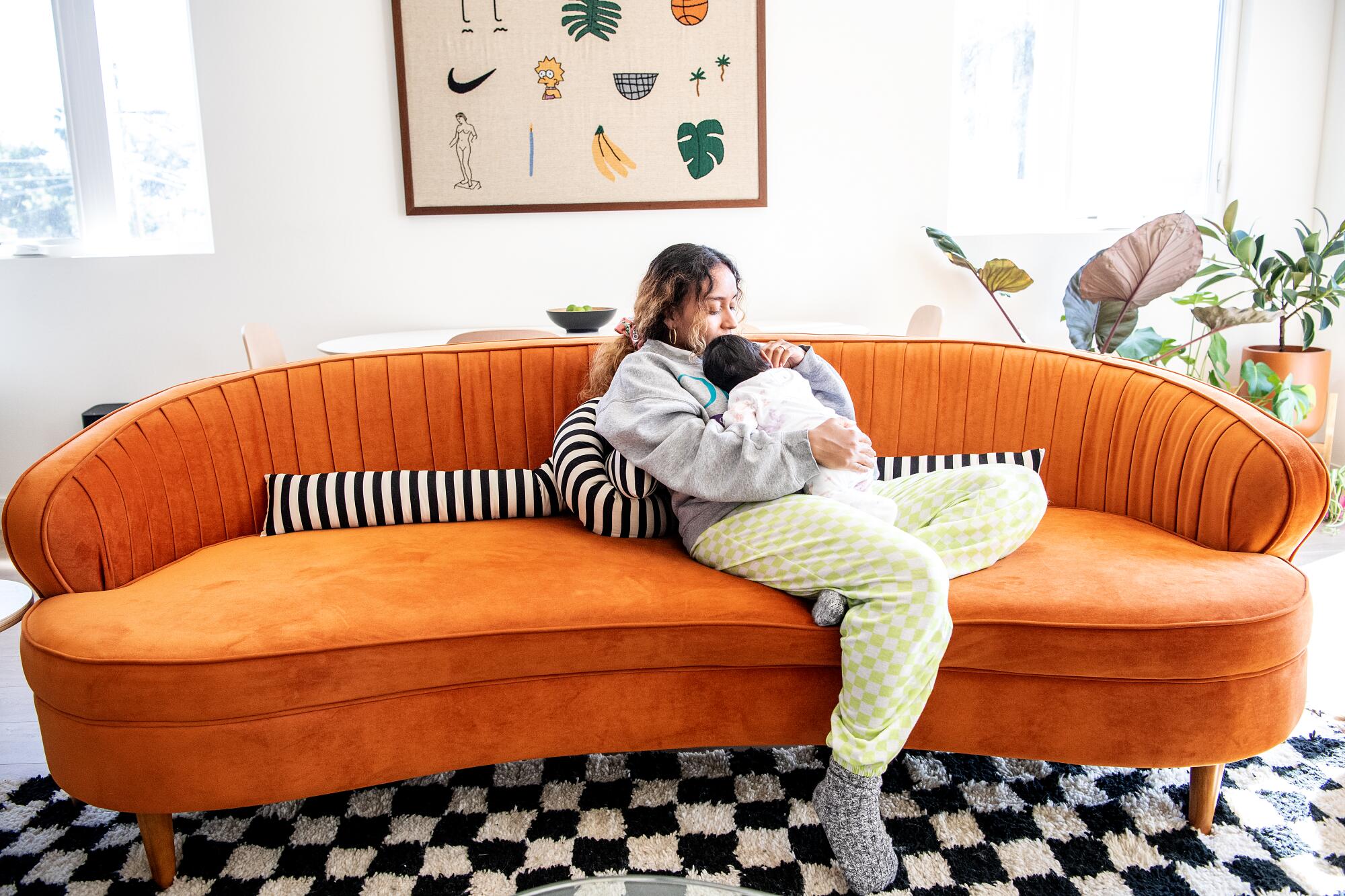
I was not concerned about my level of care because I knew I was in good hands. They got the bleeding to stop. They hooked me up to an IV. They were giving me shots of Pitocin to help my uterus contract. Eventually, they gave me a sponge bath and got me all cleaned up. Then they helped me walk over to my bed and the process was over. Well, somewhat over.
I definitely knew that there was some sort of traditional practice that happens after a baby is born, because I’m the oldest of three in my immediate family and I’m also the oldest grandchild. But it wasn’t until I was pregnant that I actually knew the name for what this was called: cuarentena.
Literally translating to “quarantine,” the Latin American custom of cuarentena is a 40-day postpartum period in which women focus on rest, abstain from sex, eat certain foods, are cared for by their community and bond with their newborn. They do this all while staying home.
As soon as my ass hit that bed, we were in rest and recovery mode. After everything that I had just gone through, I was like, “Oh yeah, I am not getting up for a goddamn thing other than using the bathroom.”
More stories from Image
Melina Abdullah talks to Angela Flournoy about how we can all get to freedom
Dave Schilling unpacks L.A.’s obsession with dad hats
Jamilah Lemieux riffs on the L.A. wave of going topless in public
We picked some of the coolest parents in L.A. culture. Now you can pick which one you want to be
With cuarentena, there’s all these rules. You have to keep your head covered, you have to be drinking broths and soups. I guess mine was definitely more a modern version but I definitely leaned into the ancestral part of it in my own way. I had a midwife by the name of Olivia Favela-Gary come over and she performed all of these rituals and ceremonies over me.
Olivia Favela-Gary is a certified nurse midwife who offers postpartum services to support women through their cuarentena. After doing a prayer and cleansing ceremony in Escobar’s home, she bound her abdomen with a faja to help heal the soft tissue and uterus while giving support to the abdominal muscles and wall. Favela-Gary performed a womb massage that helps blood flow back to the uterus while moving the intestines and energy in the right direction. Then a vaginal steaming, which uses toning and anti-inflammatory herbs to help the uterus heal. Favela-Gary followed up by giving Escobar an herbal bath in the tub and then a full-body massage. To finish off, she performed a “closing of the bones” ceremony. This process includes wrapping the new mother’s body, typically in a long scarf known as a rebozo, from head to the toe in order to “symbolically, spiritually and energetically help the woman close the bones of her body that just split open to get bring her baby into the world,” Favela-Gary says.
One of the things that I wanted to be very adamant about observing was being covered. A big part of it is when you give birth you lose all this heat in your body. I didn’t have any cold things. (The only thing that I broke for that was cold water — but that’s because my damn Swell bottle insulates the cold temperature for so long.)
Hot and cold energies are a theme of cuarentena. “Giving birth is a ‘cold’ thing,’” Favela-Gary explains. “Your body literally divides and has to open up for a baby to come into the world.” Some new mothers don’t shower in the first 40 days after giving birth in order to preserve the heat in their bodies. “For me,” Escobar says, “that was way too hard.”
I was also very much focused on breastfeeding. It’s so crazy: Breastfeeding is this super natural thing that you would think would be so easy. That shit is hard! It’s painful. My nipples hurt. Having to figure out the correct latch — you have this little baby human with such a little mouth and you’re just trying to adjust correctly. I literally thought there was some user error.
Thankfully, cuarentena allowed me to focus on that, lean into that, listen to my body.
Nourishment is a huge piece of cuarentena. The first or second night I had my grandpa bring me caldo de res. On my nightstand I had all of these snacks, this organic sports drink to replenish electrolytes and, because of the whole placenta situation, they said it was really important for me to eat protein, so I had beef jerky.
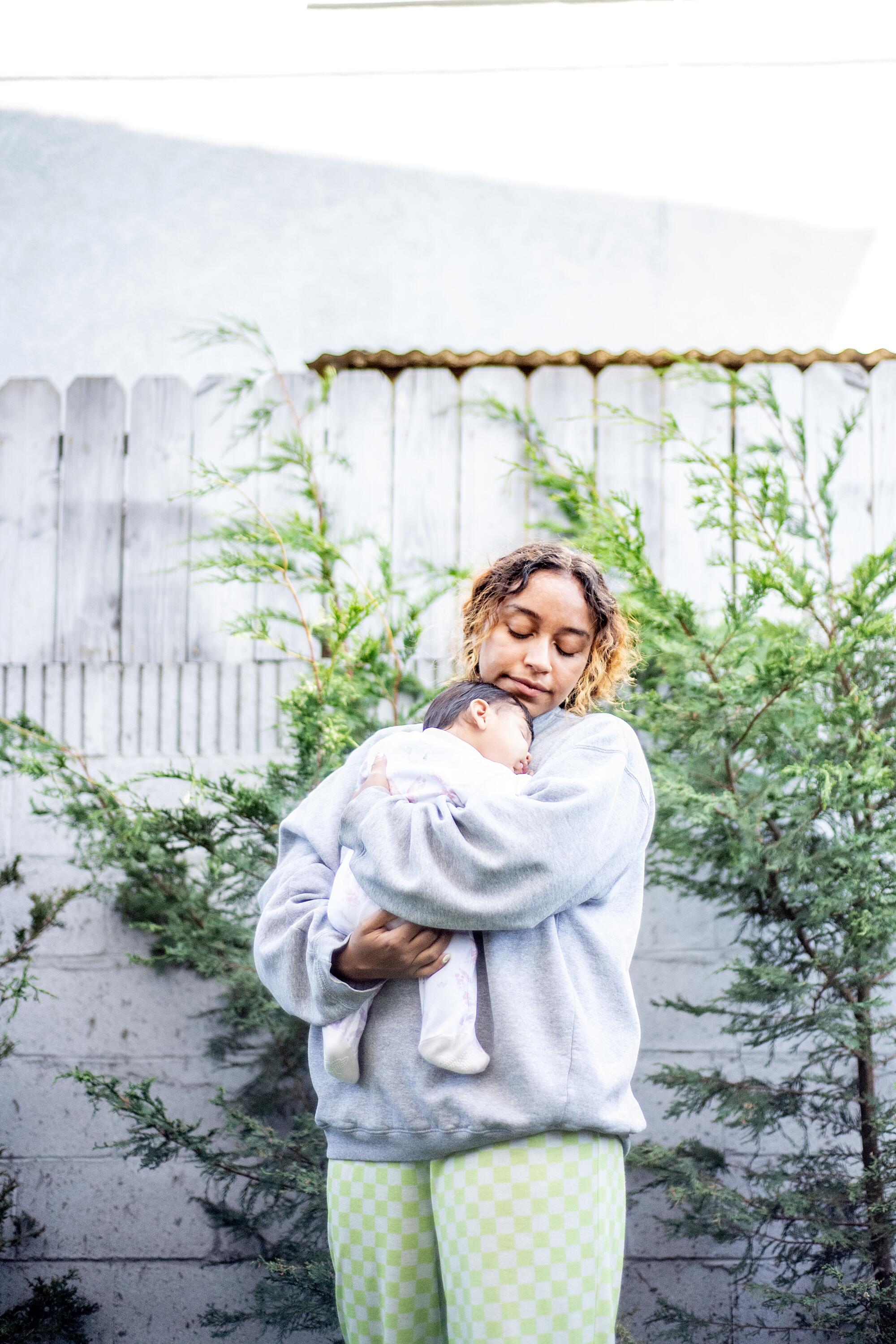
I sort of went in being like, “Oh, I’m gonna read all these books.” I did not read any of those books. What actually ended up happening was I prioritized breastfeeding and bonding with Isla, and I ended up getting caught up in, like, the fucking Marvel Cinematic Universe. I have seen everything from beginning to end. I just released expectations and opened myself up to whatever this held for me.
It is such a privilege to be able to take a full 40 days to just do nothing but take time for yourself and for your baby. A lot of people, when I tell them about my experience, are just like, “Oh my God, I don’t know how you didn’t go crazy.” Surprisingly, I was totally unfazed by the fact that I could not go outside. I would just think about the fact that the maternal health and services in this country are such shit and some women have to go back as soon as a week after birth. I can’t even imagine.
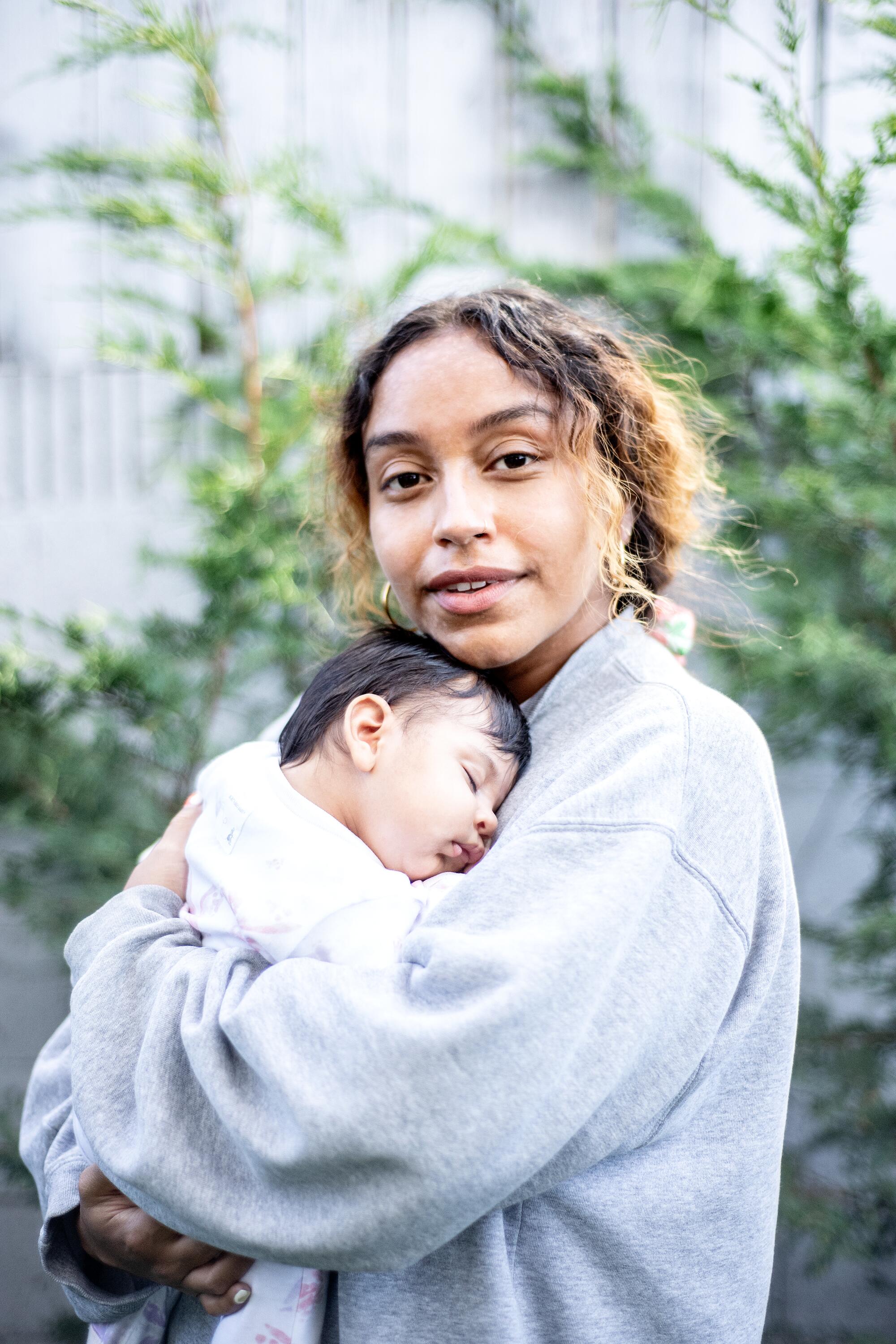
So much of the focus in our culture goes to the baby once the baby’s born, where we really need to shift that perspective to making sure the mother is OK. What is so important about the cuarentena — and also just being this Latin American tradition and staple — is that it puts the emphasis on the community and the village that it takes to raise a mother who can then raise a child.
From my grandpa, to my aunts, to my sister-in-law and doula Shakora, to Olivia, to Debbie ... having all of these Black and brown people helping to nurture me during this time was truly one of the most healing experiences. Period.
